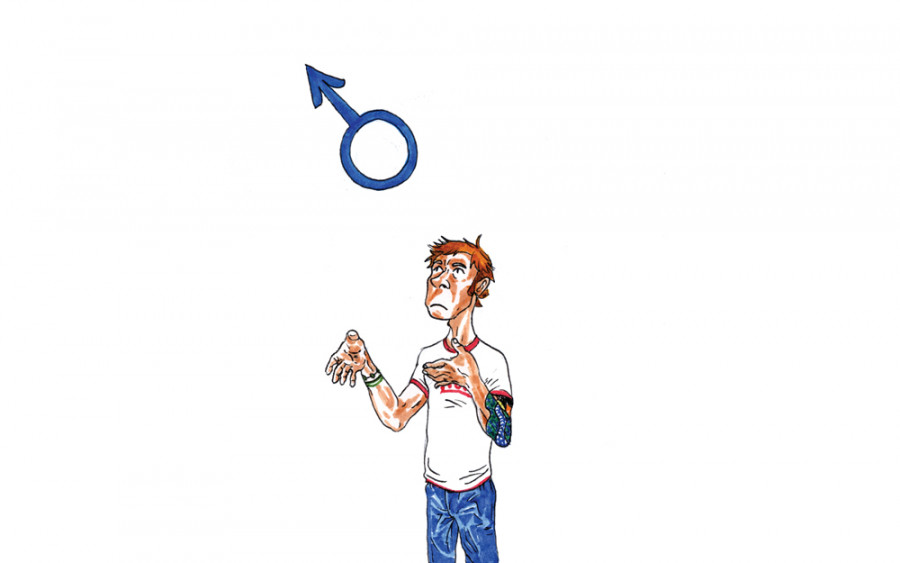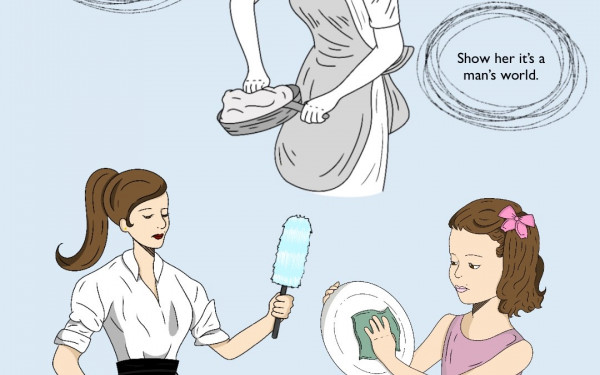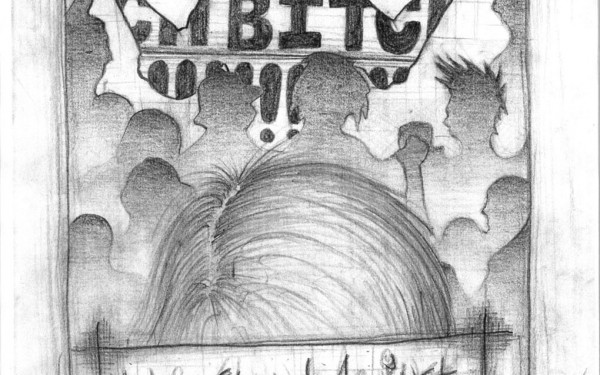Turning the Male Gaze Inward
Where do Men Fit into Discussions of Gender?
I can’t help but hesitate every time someone asks me what I study in school.
Invariably, the conversation turns to this common quip: “Women’s studies? What about men’s studies?”
Of course we should engage men in critical analysis of gender constructs, but to suggest that men’s perspectives are somehow marginalized within academic discourse simply isn’t true.
Though conditions for women have steadily been improving over the past few decades thanks to the tireless efforts of feminists that have come before us, women still face a great deal of difficulties commonly swept under the rug in mainstream discourses.
Women still earn less than men doing the same work, they’re still the victims of a disproportionate number of sexual assaults and they’re still under-represented in nearly every aspect of public life.
The insistence of some people on shifting the focus from the unfinished work of feminism back to men is something that many feminists find puzzling. The important thing to keep in mind is that men’s studies doesn’t need to stand in opposition to women’s studies, and with the right positioning, each field can help to enrich the other.
Recently Concordia University Magazine published a seven-page feature spotlighting masculinity-related research emerging from our school.
One such researcher was sociology and anthropology professor Marc Lafrance, whose work centres on “how the changing economy has caused a shift in men’s roles and, therefore, self-perception.”
In the Psychology Department, professor Roisin O’Connor “delves into what drives men’s drinking habits.”
Meanwhile graduate student Meriem Rebbani-Gosselin, working alongside Lafrance, is writing on how mass shootings are staged as “performances where conflicted ideas of power, masculinity and violence are played out.”
The breadth of men-centred research at Concordia crosses a variety of disciplines and viewpoints.
With perhaps the exception of JMSB professor Gad Saad’s work in evolutionary behavioral sciences and Darwinian consumption, which seeks to understand “how elevated testosterone levels foster risky behaviours in males and how menstrual cycles affect consumer habits among females”—an uncomfortably uncritical approach to the intersections of gender and consumerism—the work seems mostly unobjectionable.
There is plenty of space for academics to critique and analyze the role of men in society, just as feminism has critiqued and analyzed the role of women. In fact, many feminists would agree that patriarchy hurts men too. Gender roles are a harmful standard for all involved and if we’re interested in changing these conditions, men as well as women need to be a part of the conversation.
The conditions for women at Concordia are far from perfect, even with the presence of the Simone de Beauvoir Institute, the Centre for Gender Advocacy and a relatively progressive-minded student body.
Compared to other universities, however, we’re doing quite well.
The National Post recently published an article discussing the wave of recent controversies cropping up across Canadian university campuses where men’s rights activists are attempting to assert themselves in conversations around gender.
Clashing protesters have become a common sight at lectures featuring academics supporting this view, the most recent of which was at the University of Toronto where Dr. Miles Groth gave a lecture entitled “Caring About University Men: Why We Need Campus Men’s Centres in a Time of Crisis.”
Men’s rights activists who were present argued that “men suffer systematic oppression comparable to the social inequalities that gave rise to feminism.”
At this point, it’s necessary to make the distinction between critical masculinity studies, a field developed by predominantly female feminists and the most astute lens for understanding masculine gender roles, and men’s rights activism, a fringe movement fuelled by misogynistic online rants and not infrequent rape threats against feminist activists. One is a logical extension of the discussion surrounding gender, the other, little more than a hate group.
The men’s rights movement can be understood as a spectrum. At one end are critical masculinity studies work like that of Lafrance, who credits feminists and other activists in his Concordia University Magazine interview.
At the other end are groups like A Voice for Men, whose website headlines feature such buzzwords as “fempocalypse,” “female evil” and “crazy bitch.” The Canadian Association for Equality, the group funding Groth’s recent lecture, might be placed somewhere in the middle.
The question of how to effectively integrate men’s viewpoints within discussions of gender is a difficult one. When confronted with feminist arguments related to patriarchy, male privilege and the contrasting conditions of women, the knee-jerk reaction of many men is to become defensive.
Being asked to face the realities of the current state of gender relations can be a jarring experience.
What many men’s rights advocates don’t seem to understand is that the fight for gender equality is not a zero-sum game where advancements for women necessarily mean losses for men. The need for men to organize around gender issues is very real, but it’s essential that this be done in cooperation with feminists and not in opposition to them.
If Concordia hopes to avoid the fate of other Canadian universities, we need our campus to be a safe place for discussion and education, and this depends a great deal on how the men on our campuses choose to participate.







